Trump singer Evancho 'disappointed' by transgender policy
- Published
Jackie Evancho and sister hope to "enlighten" Trump on transgender issues
The singer who performed the national anthem at Donald Trump's inauguration has spoken out against him over protections for transgender students.
Jackie Evancho, 16, said she wanted to "enlighten" Mr Trump on the issue.
On Wednesday, Mr Trump overturned Obama-era guidance allowing transgender students to use school toilets matching their gender identity.
Critics of the order said it threatened other students' privacy and safety, and states should decide their own rules.
The vocalist said she was "obviously disappointed" about his move, and she wanted to meet the president to tell him what her sister Juliet, who is transgender, endured at high school.
Transgender rights activists protested near the White House against President Trump's decision on Wednesday
In an interview with ABC News, external, Juliet said she dealt with discrimination "every day", with people saying "horrible things" to her.
She said a situation where transgender students' rights over toilet use were unclear was "unsafe".
Mr Trump's move on Wednesday will have no immediate impact, because Mr Obama's directive has already been temporarily blocked by a judge in Texas.
The Obama directive sparked a backlash across the country, with legal challenges from 13 states.
A letter sent by the Trump administration to US schools on Wednesday said the previous measure had caused confusion.
Read more
Last May, Mr Obama's justice and education departments instructed public schools to allow transgender students to use whichever bathroom corresponded to their gender identity.
Though not legally binding, Mr Obama's order warned schools they could lose funding if they did not follow the new guidance.
The Obama administration's policy was based on its interpretation of Title IX, the federal law that prohibits sex discrimination in education. Mr Obama argued that protection extended to gender identity.
Education Secretary Betsy DeVos on Thursday told an audience at the Conservative Political Action Conference that the Obama administration interpretation was clearly "an overreach, a one-size-fits-all, top-down approach".
'Intimate spaces'
During his presidential campaign, Mr Trump said transgender students should be allowed to use whichever bathroom "they feel is appropriate".
But he reversed his stance after facing Republican criticism.
On Wednesday, conservative activists praised Mr Trump's order, saying it protected student rights to privacy.
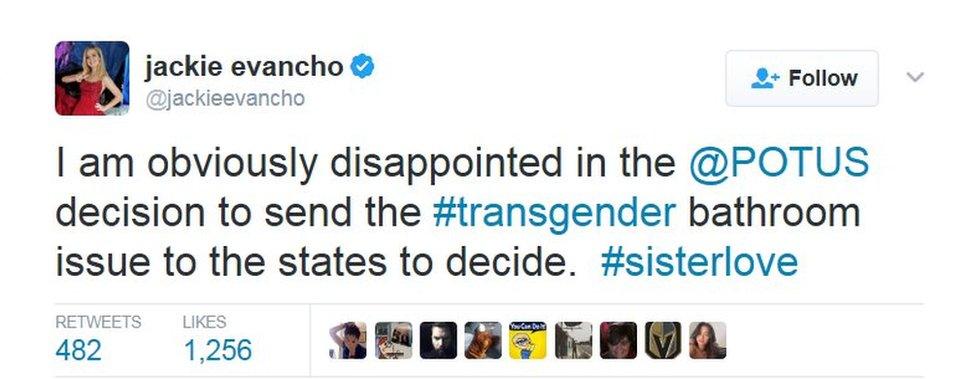
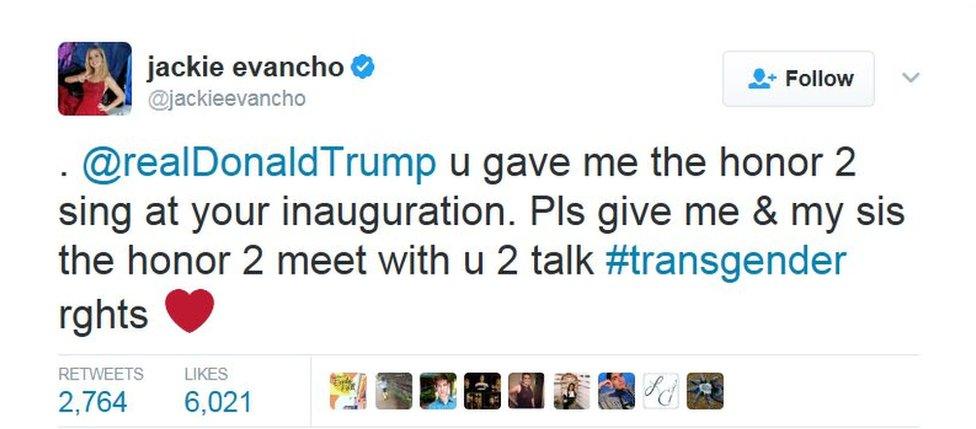
"Our daughters should never be forced to share private, intimate spaces with male classmates, even if those young men are struggling with these issues," said Vicki Wilson, a member of Students and Parents for Privacy.
"It violates their right to privacy and harms their dignity."
But the American Federation of Teachers President Randi Weingarten called the move a major setback for transgender rights.
"By rescinding these protections, the Trump administration is compromising the safety and security of some of our most vulnerable children," she said.
"Reversing this guidance tells trans kids that it's OK with the Trump administration and the Department of Education for them to be abused and harassed at school for being trans."
'Privilege to perform'
Jackie Evancho told ABC she had not yet had a response from the president to her request for a meeting.
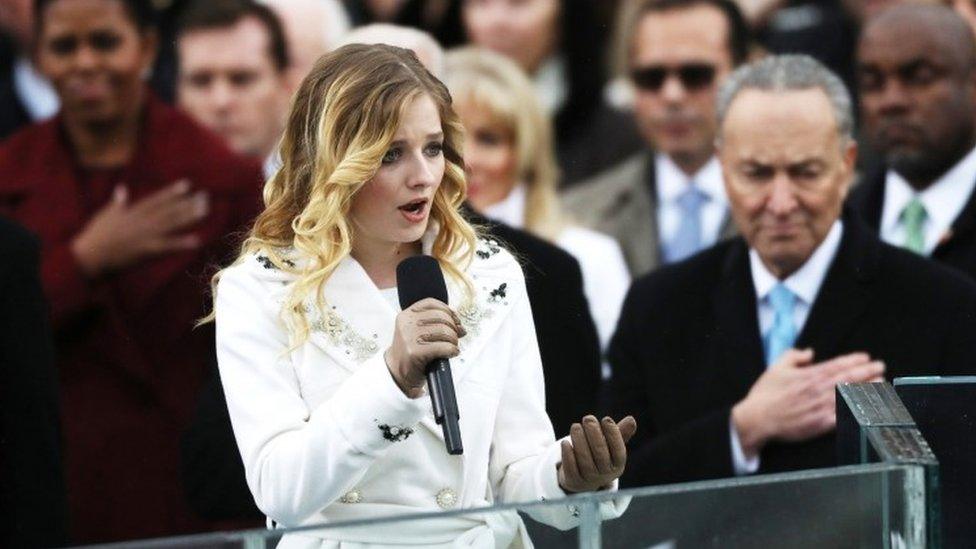
Jackie Evancho sang the national anthem at the swearing-in ceremony in Washington DC
But the former America's Got Talent contestant, who also previously sang for Barack Obama, said she did not regret singing at Mr Trump's inauguration in January.
She said she had agreed to appear not because of politics, but for "the honour and privilege" of performing for her country.
Other celebrities also criticised the decision on social media, with TV presenter Ellen DeGeneres tweeting: "This isn't about politics. It's about human rights."
Zoey, like many kids, is using drugs to delay puberty and change her birth gender

Are you a transgender student who is affected by this decision? Get in touch with us by emailing haveyoursay@bbc.co.uk, external.
Please include a contact number if you are willing to speak to a BBC journalist. You can also contact us in the following ways:
WhatsApp: +44 555 173285
Send pictures/video to yourpics@bbc.co.uk, external
Tweet: @BBC_HaveYourSay, external
Send an SMS or MMS to 61124 or +44 7624 800 100
- Published8 June 2016
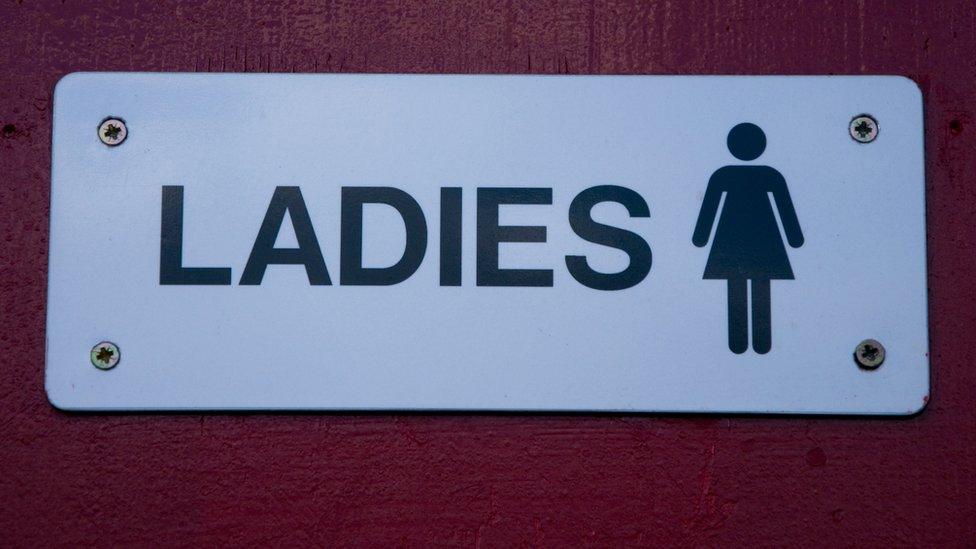
- Published12 April 2016
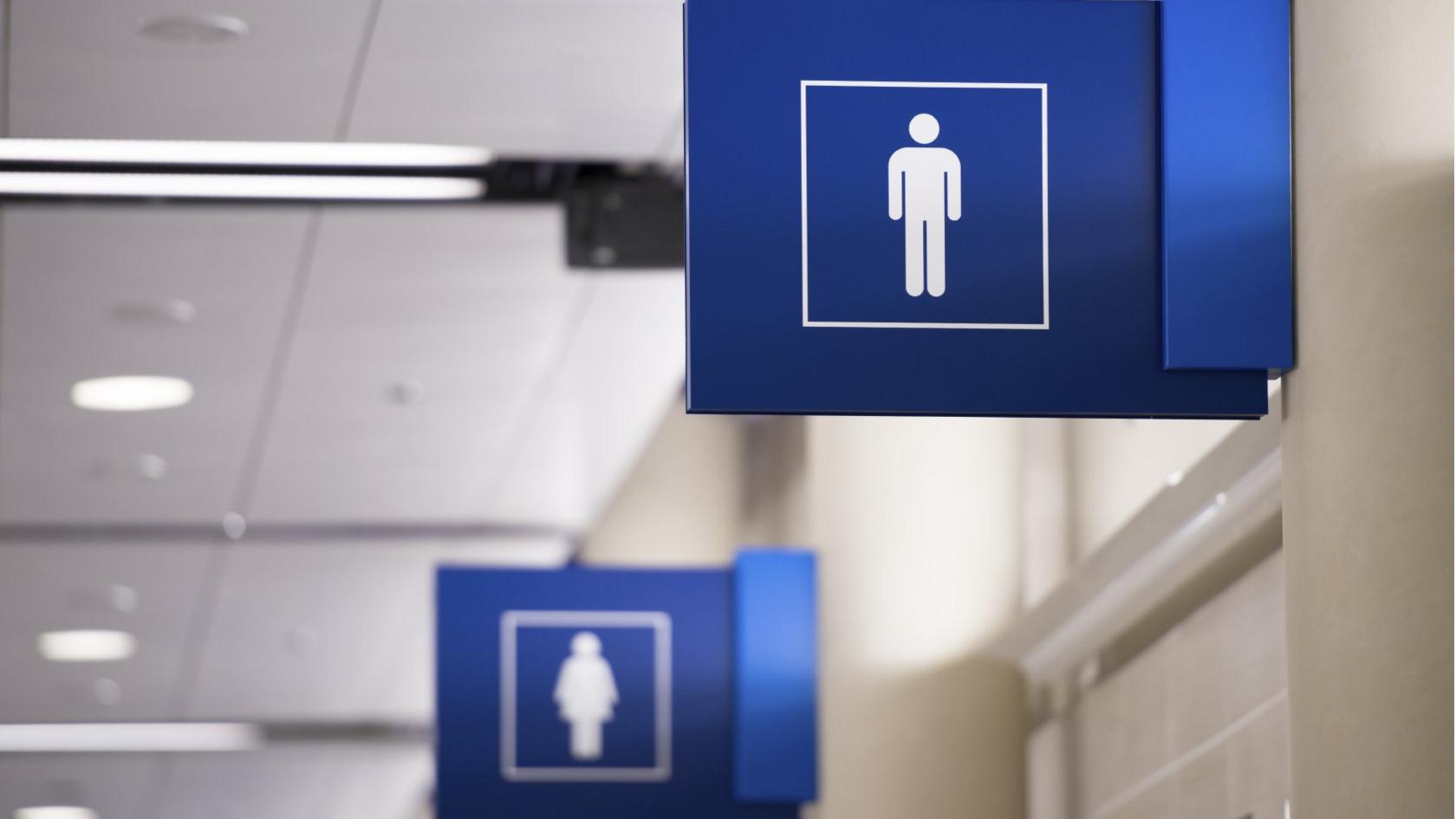
- Published20 January 2017